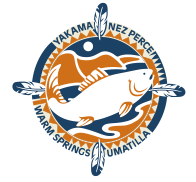An Evaluation of the Clearwater River Supplementation Program in Western Washington
Abstract
This paper presents preliminary results of a study to evaluate the potential utility of supplementation of natural origin Coho Salmon (Oncorhynchus kisutch) on the Clearwater River, a tributary of the Queets River in western Washington. The study, initiated in 1984, involves the collection of natural origin brood stock, rearing in a combination of hatchery and natural environments, and volitional releases, combined with marking and sampling of natural origin fish. Primary findings relative to five essential research questions of this study concluded that (i) smolts from supplementation returned at a lower rate than natural smolts; (ii) the reproductive efficiency (spawner to spawner) of fish taken for supplementation was higher than that for fish allowed to spawn naturally; (iii) supplemental fish successfully reproduced and the combined supplemental-natural spawning population had a high productivity; (iv) supplementation did not appear to have affected the overall reproductive performance of the population for the duration of the project; and (v) supplementation increased the overall spawner return on the Clearwater River and is required to maximize adult production, unless conditions in both freshwater and ocean environments are optimal.
Authors
Citation
Sharma, R., G. Morishima, S. Wang, A. Talbot, and L. Gilbertson. 2006. An evaluation of the Clearwater River supplementation program in Western Washington. Canadian Journal of Fisheries and Aquatic Sciences 63(2):423–437. Online at https://cdnsciencepub.com/doi/10.1139/f05-228.
